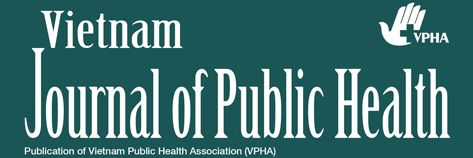Một số yếu tố ảnh hưởng đến dự định hiến máu nhắc lại: Kết quả từ nghiên cứu tổng quan hệ thống
Tóm tắt
Tổng quan hệ thống này trình bày các yếu tố ảnh hưởng đến dự định hiến máu nhắc lại. Báo cáo nghiên cứu được tìm kiếm trên cơ sở dữ liệu Pubmed tính đến thời điểm tháng 3/2016, sử dụng từ khóa “blood AND intent* AND (repeat* OR return OR repeti*)”. Các nghiên cứu được chọn vào tổng quan theo quy trình PRISMA. Chất lượng nghiên cứu được đánh giá theo thang đo độ mạnh bằng chứng. Kết quả: 20/498 tài liệu từ hệ thống Pubmed được đưa vào tổng quan. Trong đó có 2 nghiên cứu tổng quan hệ thống, 5 nghiên cứu thử nghiệm lâm sàng ngẫu nhiên có đối chứng hoặc can thiệp, 3 nghiên cứu thuần tập và 10 nghiên cứu cắt ngang, bệnh chứng và định tính. Thái độ hướng đến hành vi và sự tự chủ là 2 ảnh hưởng lớn nhất đến dự định hiến máu nhắc lại, tiếp theo đó là chuẩn mực chủ quan, nhận thức kiểm soát hành vi, chuẩn mực đạo đức cá nhân, sự hài lòng, các phản ứng tham gia hiến máu và các yếu tố nhân khẩu học.
Từ khóa
##submission.citations##
Tiếng Anh
World health Organization. Blood safety. 2011.
Martin-Santana JD, Beerli-Palacio A. Achieving donor repetition and motivation by block leaders among current blood donors. Transfusion and apheresis science : official journal of the World Apheresis Association : official journal of the European Society for Haemapheresis. Dec 2012;47(3):337-343.
Masser BM, White KM, Hyde MK, Terry DJ, Robinson NG. Predicting blood donation intentions and behavior among Australian blood donors : testing an extended theory of planned behavior model. Transfusion. 2009;49(2):320-329.
Nguyễn Anh Trí. Cẩm Nang Vận Động Hiến Máu Tình Nguyện. 2013.
Nguyễn Đức Thuận, Cù Thị Lan Anh, Ngô Mạnh Quân. Đánh giá tình hình người hiến máu tình nguyện năm 2005. 2005.
Resource ChIr. Behavioral Intention. 2002; https://chirr.nlm.nih.gov/behavioral-intention.php. Accessed 28-04, 2016.
Bagot KL, Murray AL, Masser BM. How Can We Improve Retention of the First-Time Donor? A Systematic Review of the Current Evidence. Transfusion medicine reviews. Apr 2016;30(2):81-91.
Bednall TC, Bove LL, Cheetham A, Murray AL. A systematic review and meta-analysis of antecedents of blood donation behavior and intentions. Social science & medicine (1982). Nov 2013;96:86-94.
Organization Wh. Blood safety. 2011.
Group TP. Preferred Reporting Items for Systematic Reviews and Meta- Analyses: The PRISMA Statement: PLoS Med2009.
Network SIG. Translation of evidence levels. 2014; http://sign.ac.uk/guidelines/fulltext/104/index.html. Accessed 21/04, 2016.
Trương Quang Tiến. Đại Cương Giáo Dục Sức khỏe - Nâng cao sức khỏe. 2015.
France JL, France CR, Himawan LK. A path analysis of intention to redonate among experienced blood donors: an extension of the theory of planned behavior. Transfusion. Jun 2007;47(6):1006-1013.
France JL, France CR, Himawan LK. Re-donation intentions among experienced blood donors: does gender make a difference? Transfusion and apheresis science : official journal of the World Apheresis Association : official journal of the European Society for Haemapheresis. Apr 2008;38(2):159-166.
France CR, France JL, Wissel ME, Ditto B, Dickert T, Himawan LK. Donor anxiety, needle pain, and syncopal reactions combine to determine retention: a path analysis of two-year donor return data. Transfusion. Sep 2013;53(9):1992-2000.
Hillgrove TL, Doherty KV, Moore VM. Understanding non-return after a temporary deferral from giving blood: a qualitative study. BMC public health. 2012;12:1063.
Nguyen DD, Devita DA, Hirschler NV, Murphy EL. Blood donor satisfaction and intention of future donation. Transfusion. Apr 2008;48(4):742-748.
France CR, France JL, Carlson BW, et al. A brief motivational interview with action and coping planning components enhances motivational autonomy among volunteer blood donors. Transfusion. Jan 29 2016.
Godin G, Germain M, Conner M, Delage G, Sheeran P. Promoting the return of lapsed blood donors: a seven-arm randomized controlled trial of the question-behavior effect. Health psychology : official journal of the Division of Health Psychology, American Psychological Association. Jul 2014;33(7):646-655.
Sinclair KS, Campbell TS, Carey PM, Langevin E, Bowser B, France CR. An adapted postdonation motivational interview enhances blood donor retention. Transfusion. Aug 2010;50(8):1778-1786.
Masser BM, White KM, Terry DJ. Beliefs underlying the intention to donate again among first-time blood donors who experience a mild adverse event. Transfusion and apheresis science : official journal of the World Apheresis Association : official journal of the European Society for Haemapheresis. Oct 2013;49(2):278-284.
Masser BM, Bove LL, White KM, Bagot KL. Negative experiences and donor return: an examination of the role of asking for something different. Transfusion. Mar 2016;56(3):605-613.
Schlumpf KS, Glynn SA, Schreiber GB, et al. Factors influencing donor return. Transfusion. Feb 2008;48(2):264-272.
Weidmann C, Muller-Steinhardt M, Schneider S, Weck E, Kluter H. Donor satisfaction with a new german blood donor questionnaire and intention of the donor to return for further donations. Transfusion medicine and hemotherapy : offizielles Organ der Deutschen Gesellschaft fur Transfusionsmedizin und Immunhamatologie. Oct 2013;40(5):356-361.
Godin G, Conner M, Sheeran P, Belanger-Gravel A, Germain M. Determinants of repeated blood donation among new and experienced blood donors. Transfusion. Sep 2007;47(9):1607-1615.
Godin G, Amireault S, Vezina-Im LA, et al. Implementation intentions intervention among temporarily deferred novice blood donors. Transfusion. Aug 2013;53(8):1653-1660.
Tiến TQ. Đại Cương Giáo Dục Sức khỏe - Nâng cao sức khỏe. 2015.



